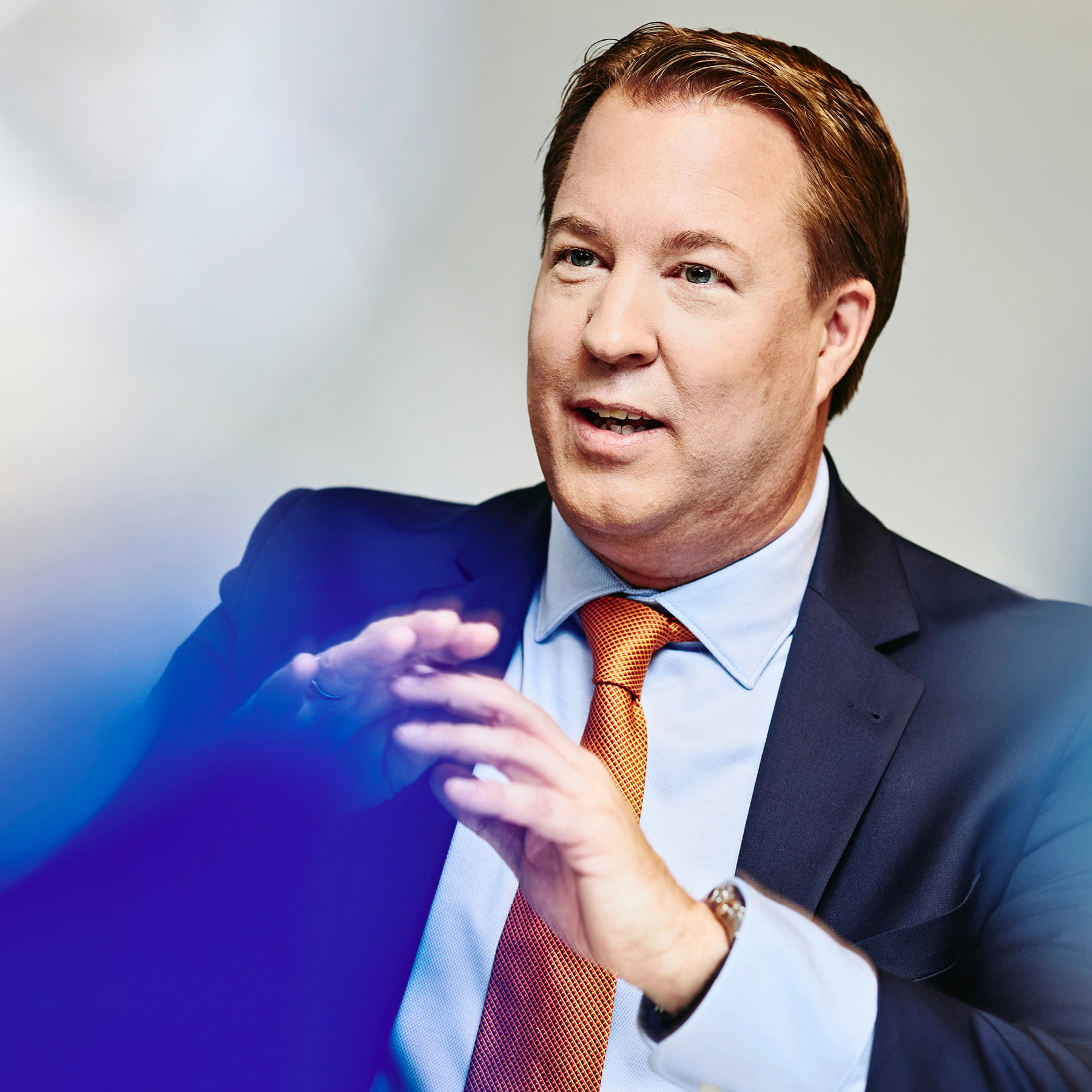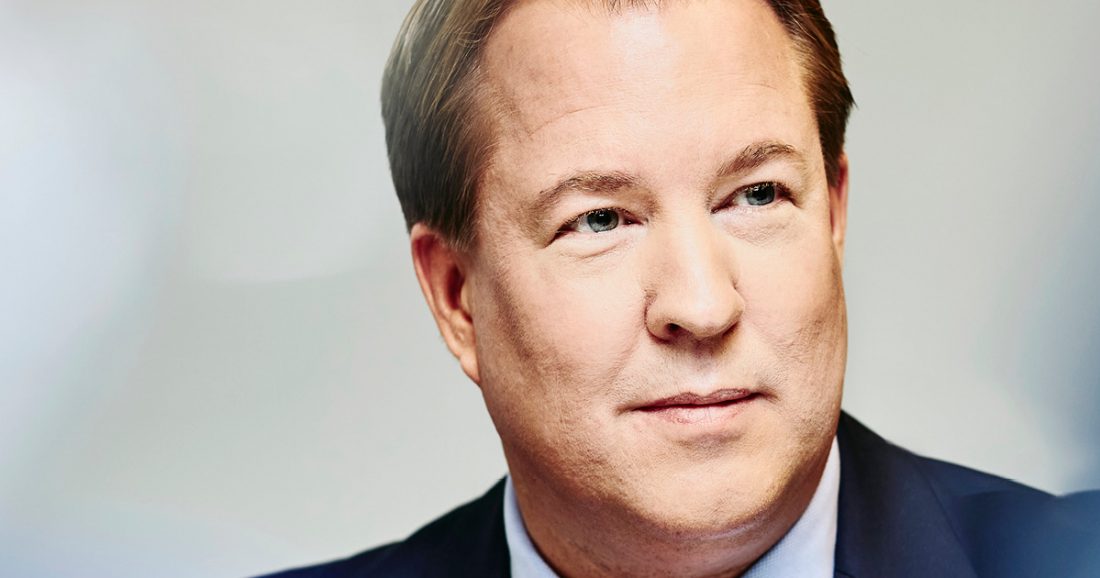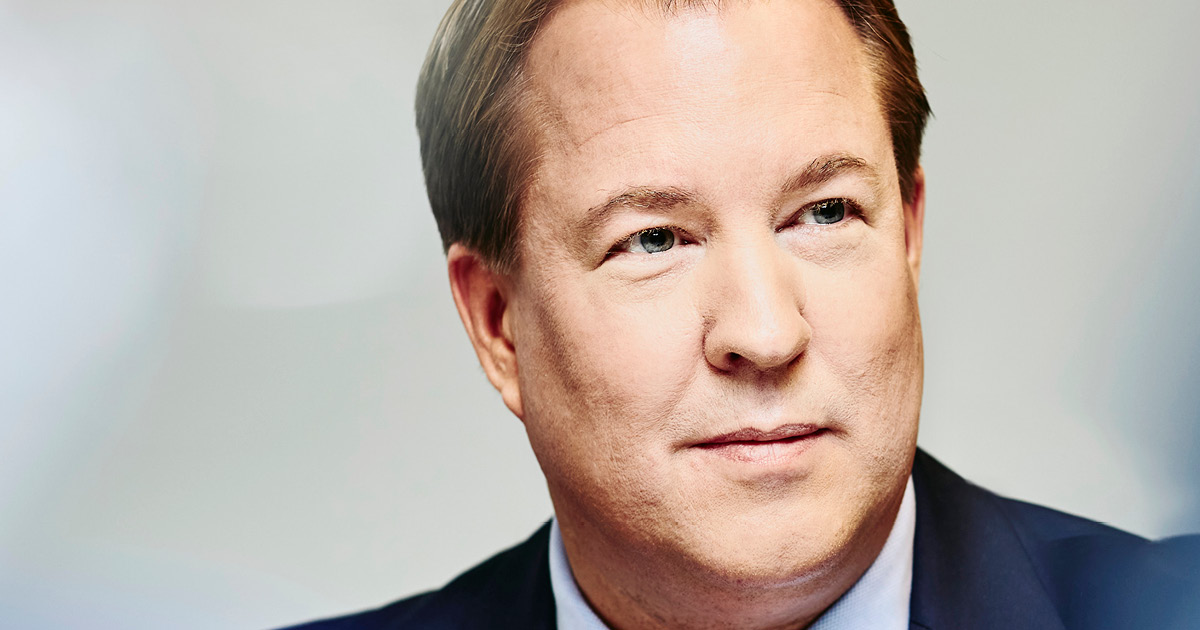When news broke that Russia had invaded Ukraine on 24 February 2022, an escalation of the long-running Russia–Ukraine war, Henri Viswat had been sitting at the CEO desk at Randstad Polska for just a few months.
As the humanitarian crisis unfolded, Viswat felt an intense pang of responsibility for the recruitment services company, which counted 3,500 Ukrainian workers among its ranks – a significant portion of its 20,000 total.
Stirred to action, within 24 hours, Randstad Polska put in place a call center with a dedicated phone number for its Ukrainian employees, offering in-language support along with access to Ukrainian-speaking psychologists.
In collaboration with
Lingaro Group

Next, Viswat turned his attention to providing assistance to the sudden influx of Ukrainian refugees that were making their way into Poland by finding them work opportunities.
“One of the most important things in somebody’s life is work, because work is income, and income is being able to take care of yourself and make your own decisions,” he tells The CEO Magazine.
“And what is it we do? We provide work and create equal career opportunities for everybody.”
Client Collaboration
Randstad Polska began reaching out to its clients asking them to work together to help these refugees.
“The solution that we came up with was that we would help those people to find a job with our clients. The clients would pay us the full amount without any discount, but we would take all the margin on those people and use it to pay for their housing and their childcare, because the majority of them were women with children,” Viswat shares.
However, it quickly became clear that the margin would not be enough to cover these expenses, and so Randstad Polska contributed a further donation, which would cover the full cost of rent and childcare.

“My wish would be that, as a country, as a company, as a society, as a person, as a leader, that we would all look at this world in the most equitable way.”
“This meant they could work in a normal job that was paying just as much as they would have gotten before, and all their expenses were paid for them,” he says.
These inspiring efforts represent just part of a broader vision for Viswat.
“My wish would be that, as a country, as a company, as a society, as a person, as a leader, that we would all look at this world in the most equitable way and that we would run our businesses putting talent at the center, putting people in the center,” he adds.
Strategic Shift
This is the crux of Randstad’s new global strategy, ‘Partner for Talent’, which it unveiled toward the end of 2023.
“Partner for talent does not only mean being a partner for our ‘talent’ – which is the word we use for candidates – but also, being a partner for talent for our clients,” Viswat explains. “Clients come to us for advice within the HR domain, but also because we help them find the right talent to support their business.”
With Randstad having spread across five continents and 39 countries during the 60 years since it was first founded in the Netherlands, its ‘Partner for Talent’ strategy requires a different approach in each thanks to the local specificities.

“Clients come to us for advice within the HR domain, but also because we help them find the right talent to support their business.”
Randstad Polska is at the forefront of this strategic transformation, Viswat explains, because its working landscape revolves less around corporate headquarters and higher-level executives, and is instead divided mainly between its blue-collar segment, focused around logistics and production, and shared white-collar service centers.
“Poland is a pocket of growth within the European market, and even potentially in the global market. And within that market, we still see that we are super strong in developing in this blue-collar domain, and also within this white collar-domain in shared services. So, we are very well known within that market,” he says.
“So for us it was easier, obviously, to implement this new strategy in Poland, connecting it to the local market.”
The Local Touch
The company’s focus on being “specialized and equitable” has also helped effectively roll out the strategy in Poland, according to Viswat.
“We are a big global player, but we are also very much specialized internally, which means that we can also compete with more specialized companies in local markets, adding more value for our clients through our experience and knowledge,” he expands.
But Viswat stresses that it is just as important to create more opportunities on the talent side. “Especially in the times that we are now in, being equitable is super important for people looking for the next step in their careers. So we want to add the tools, the development and the upskilling that talent needs to be able to get that equal treatment at the end of the day, because not everyone is starting from the same point.”

“Here operational excellence can be a competitive differentiator, so that means we really have to focus on delivery models and ask, ‘How can we do things in the most efficient way?’”
Delivering on this new mission while also prioritizing operational excellence is how Randstad Polska intends to maintain its edge over its rivals, with competition coming from a number of directions.
Its traditional competitors are the global companies in the same field of play. “Here operational excellence can be a competitive differentiator, so that means we really have to focus on delivery models and ask, ‘How can we do things in the most efficient way?’”
Viswat sees the answer to this all-important question in the centralization of processes and the incorporation of digital to the mix in the form of AI and algorithms that can be used in matching. Finding digital solutions better suited to the local market and its labor laws is also crucial, he adds.
Standing Out
But when dealing with disruptive market newcomers, such as jobs marketplaces that often play solely in the digital arena, a different approach is once again required.
“That’s where we also need to balance operational excellence with the personal touch,” he says.
Another important differentiator is Randstad Polska’s leadership in terms of data thanks to its longevity in the local market, dating back three decades to 1994 when Poland was not yet an attractive option for many multinationals.

“This is all about developing and creating opportunities for people, because at the end of the day, work is one of the most important elements in somebody’s life.”
“Being in the market for so long, and being the market leader in our domain, also means that we are even much further ahead than our competitors,” Viswat says. “We have a lot of data.”
The Randstad Institute carries out surveys on a regular basis, giving the company access to labor market data and market insights, which can inform not only its own work but also that of its clients. A broad-reaching partnership with end-to-end data services partner Lingaro is also helping Randstad Polska fully benefit.
“This is all about developing and creating opportunities for people, because at the end of the day, work is one of the most important elements in somebody’s life,” Viswat stresses. “Work gives you an income, and income gives you the ability to make your own choices and to be freer to lead the life that you want to live.”




